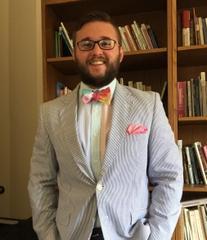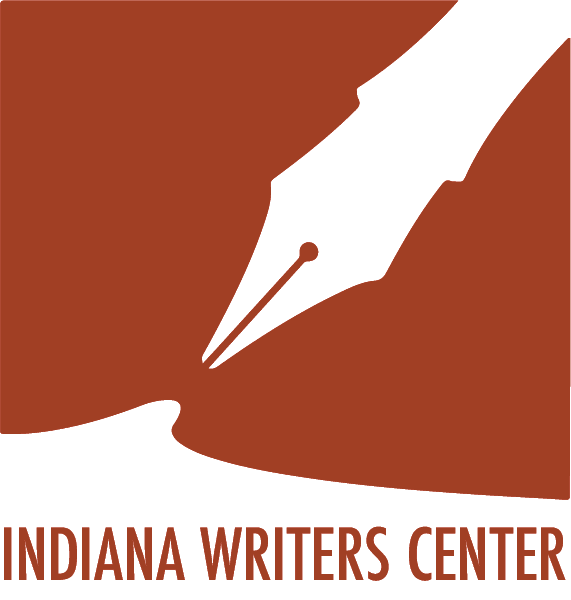
Luke Wortley’s class Re-visiting the pyramid: Examining traditional and alternative narrative structures in prose is scheduled for Thursday, November 15, 6:30 p.m.
Why do you write?
I write because I feel like I have no choice. There have been plenty of versions of me over the years, and the ones that include large periods where I was not writing have all been unequivocally worse versions than the ones that include me actively engaging in the process of writing, even if it wasn’t producing words on a daily basis.
What are you working on right now?
I’m always writing stories and flash in various stages of completion and abandonment, but right now I’m working on a novel set in a fictionalized, rural county in Kentucky, a sort of exaggerated facsimile of where I was raised. It originally started as my MFA thesis, but I really wasn’t happy with the way it turned out upon graduation, but this book wouldn’t get out of my head. Nearly three years later, I still found myself writing anecdotes about the characters, jotting down thousands of words on the geography, making stacks of index cards for plot points. As such, I dug it back out in recent months, wholesale excised the bits I didn’t like, and started writing the story I really wanted to tell. I hope the process will be cathartic as I explore the impact of generational toxic masculinity in the rural South, how it interacts with the blood-soaked earth resting so precariously on the porous limestone bedrock.
Favorite books or essays about the craft of writing?
I found Reading Like a Writer by Francine Prose was a super formative book for me during my first year of the MFA at Butler. Read it. I read a lot of interviews throughout the literary world, and I definitely recommend subscribing to the Lit Hub daily newsletter, as they do a lot of the hard work for you by aggregating interviews, essays, and reviews.
What’s your favorite book, or the best book you’ve read recently? What do you love about it?
Woof. I guess the book that really changed my perception of what literature could be was The Sound and the Fury by William Faulkner, as completely and utterly cliché as that sounds. It was my first introduction into a truly modernist text and so drastically warped what I thought plot, character, and structure could be, and reading it for the first time was simultaneously a heartrending earthquake of sadness and a cognitive thrill. All this long before I even thought about trying my own hand at writing.
More recently, I have to give major props to How to Write an Autobiographical Novel by Alexander Chee, a collection of essays that took my heart into a velvet storm of language and out the other side fundamentally altered.
Is there a writer whose work provided new understanding of what fiction writing is, and how it can be written? If so, who and how?
I’m evangelical about the work of Karen Russell. Her story collection St. Lucy’s Home for Girls Raised by Wolves was so utterly instrumental in my development as a writer. My undergraduate degree is in Spanish, and I’d encountered a lot of the giants of Latin American literature, especially the Boom writers of the late 20th century that redefined surrealism as a political act – otherwise known as magical realism. I’d tried unsuccessfully to mimic their work; however, lacking any real political context, the work was merely imaginative and not much else. Russell’s work showed me how you could show the world as a wildly off-kilter place that’s hidden in plain sight, how the insides of a conch shell are just as valid a window into the human imagination, our fragile, juvenile selves as Macondo. I’m also still miffed that Swamplandia! didn’t win her the Pulitzer, even though Train Dreams by Denis Johnson was truly remarkable as well.
What was the greatest piece of advice you ever got about writing?
So, in staying true to my brand, I’ll just say that process-oriented axioms always turn me inside out in the worst way possible. I guess, in my experience, writing advice tends to oscillate between two extremes – either overly prescriptive to suggest some kind of formalism for “success” or overly obtuse to the point of being completely nebulous. For me, I will say the single most psychologically damaging piece of writing-related advice I have ever received and continue to receive is any iteration of “write every day.”
I just find that, for many amateur writers like myself, there is already too much guilt associated with writing and not writing. Especially the not part. The reason the “write every day” billboards, even the more conciliatory versions that include some provision for “…even if it’s only for 15 minutes,” have been such a destructive force for me in the past is that it in and of itself turns into a measuring stick. Don’t get me wrong, I know plenty of folks who can make their writing time sacrosanct on a daily basis; I’m just not one of those people. In my experience, very few of us writerly types are. Sure, there will always be a little voice that browbeats you for having other obligations and eviscerates an otherwise good, productive day because you didn’t squeeze in a few words. However, when you measure your success or failure as a writer by consecutive days of butt-in-chair time, it can create a very dangerous feedback loop if you miss even one day. This is especially true if there’s an added layer of “just for 15 minutes” because there’s this extra self-flagellation that you couldn’t even do that, which slows momentum for the next attempt, which leads to anxiety, which in turn makes us lock up even more.
All this is a roundabout way of saying that, frankly, the best piece of writing advice I’ve received is that it’s okay to give yourself a break and to understand that writing requires a commensurate amount of rest that’s determined by that person’s stamina during any given period of time. I love the “write every day” crowd because they motivate me to strive for something more consistent, but I also know that my brain doesn’t run with a predictable emotional and intellectual bandwidth every day, at least not at this point in my life. Yours might not either. That’s okay. Do all the things that keep your desire sharp instead. Read, journal, think incessantly about writing and reading, talk about it, pick and pull at old sentences. Write when you’re ready.
Why do you like teaching at IWC? What do you look forward to about it?
When you’re in undergraduate and graduate school, it’s easy to forget just how fulfilling it is to be around people who eat, sleep, breathe, and talk about the same esoterica as you. It’s really easy to conveniently forget the end will come, and there will be a finite point in your life where there was a before and an after… a time when you’re immersed in such creativity, such a preponderance of openness followed by weeks on end of seemingly no contact with anyone that’s read anything resembling a book in years. The IWC allows folks like us who crave that creativity and openness to have a safe space to genuflect at the altar of carefully chosen words.
Website and social media info:
When Luke was a kid, he wanted to be an interventional radiologist. After several concussions, he forgot calculus and figured out he loved words instead. He has a B.A. in Spanish from Wright State University and an M.F.A. in Creative Writing from Butler University, where he was the former fiction editor at Booth: A Journal and the student editor of Pressgang.
Currently, he works for the Indiana Rural Health Association as a grant writer and program coordinator helping alleviate health disparities for underserved populations; he also teaches Latin American History as an adjunct professor at Butler University.
His poem, “Reparations” was a finalist for the 2016 Lascaux Prize in Poetry. His flash fiction and short stories have appeared in Inch, Cleaver, New Limestone Review, and elsewhere. He is currently at work on a novel set in his native Kentucky.
